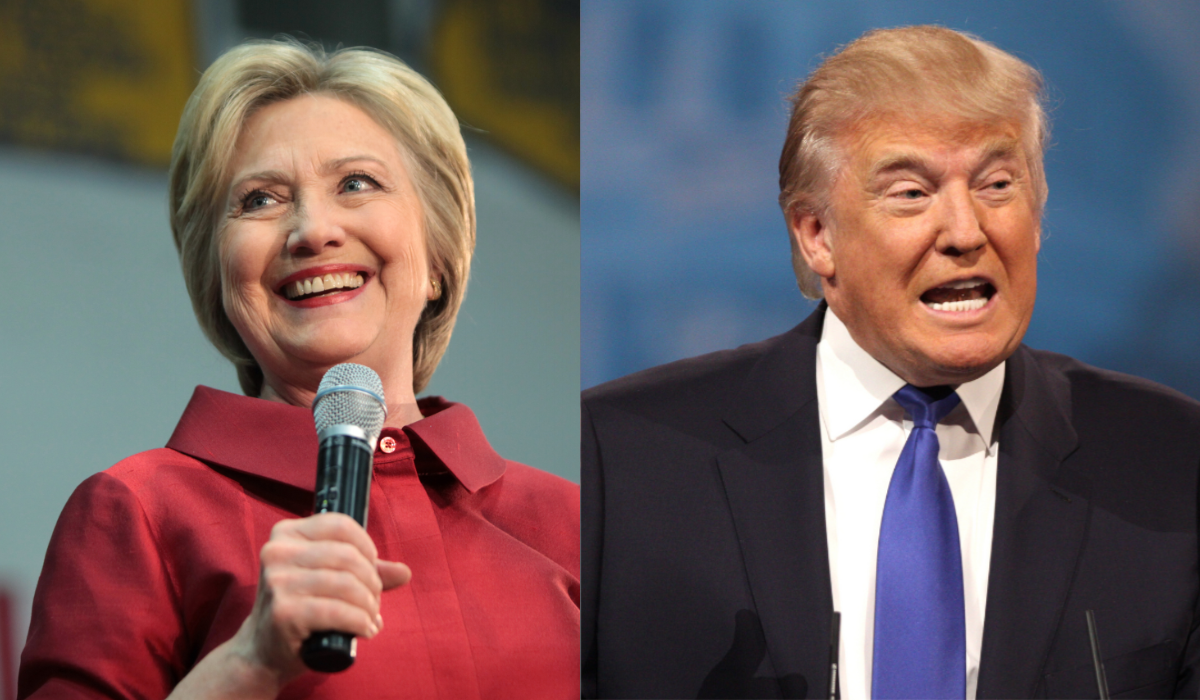A brief guide to holding the candidates accountable.
 (photo credits: Gage Skidmore / Gage Skidmore)
(photo credits: Gage Skidmore / Gage Skidmore)
“Achieving prosperity,” “securing America” and “America’s direction” – these are the themes of the first presidential debate taking place tonight at Hofstra University in New York. With the polls tightening, and the countdown to election day narrowing, it’s time for Trump and Clinton to put their best foot forward. Here’s what to watch for tonight.
1. Their vision
Change is constant. Two decades into the 21st century, most Americans carry smartphones in their pockets, live and work in cities, keep up with friends and family on social media networks, and perhaps before long, will commute in autonomous vehicles. And yet despite leaps in progress over many decades, change hasn’t healed all wounds in America. Many across the country face instability in their employment, discrimination in their communities, and the loss of loved ones to disease and epidemic.
Tonight, when Trump and Clinton respond to questions about America’s direction, don’t settle for anything less than a picture of the future steeped in the realities of the present. Look for an honest vision that meets the country where it’s at—both the good and the bad. The innovation and entrepreneurship taking hold in cities across the country like Chattanooga, Tenn., and the basic human rights neglected in communities like Flint, Mich.
Finally, look for whether the candidates’ visions touch on “place.” If we want to better our family, we have to talk about our house. In the same way, if we want to talk about improving our nation’s economy, we must talk about our cities – the infrastructure that supports them and the policies that govern them. What do Trump and Clinton have to say about the places we live, work and play?
2. Their grasp of the issues
Beware of platitudes. Turning vision into reality requires a strong grasp of the issues. When the candidates talk about improving the economy, listen to whether they talk about workforce development and training. When they talk about innovation, listen to whether they bring up investing in America’s broadband infrastructure. When Clinton and Trump debate road, rail and bridge infrastructure, are they also talking about autonomous vehicles, commercial drone use, or modernizing our transit systems?
In the public health arena, listen closely to what the candidates say about the Zika virus – and their approach to handling future public health outbreaks. Listen to the candidates’ plans to address climate change. Energy efficiency and renewable energy programs are key areas where local governments are making investments – will the next president support these actions? When the candidates discuss community-police relations, listen for whether they address community oriented policing.
3. Their plan of action
Having a vision and a grasp of the issues must come first – but they don’t mean anything without a plan that can achieve results. Once Clinton or Trump get into office, their success will be contingent upon their ability to partner with the other levels of government, as well as the private sector, to get things done. Tonight, listen to whether the candidates talk about the partnerships they’ll need to develop and implement their agendas.
Over the past eight years, the National League of Cities has partnered with the Obama Administration to reduce childhood obesity and veteran homelessness, rebuild trust between communities and police, connect kids to nature, to make it easier for small businesses to get started, and much more. NLC and its member cities will be looking from day one of the transition to work with the next President to put in place policies and programs that improve communities.
Clinton or Trump also need to commit to listening. If public policies are implemented without relevant input, the public may end up paying for it when a plan fails. Federal policies are stronger and more successful to the extent that they reflect the needs and interests of America’s communities. City leaders have a deep knowledge of local conditions, as well as the challenges and opportunities facing cities. Tonight, watch for whether either candidate mentions the importance of listening and collecting input to their decision-making process.
If you want to stand with cities and ensure that the issues most important to your community have a presence in the national political debate this year, join us and sign onto our city issues platform.
 About the author: Tim Mudd is the Program Manager for Content and Social Media at the National League of Cities. Follow Tim at @TimMudd.
About the author: Tim Mudd is the Program Manager for Content and Social Media at the National League of Cities. Follow Tim at @TimMudd.
